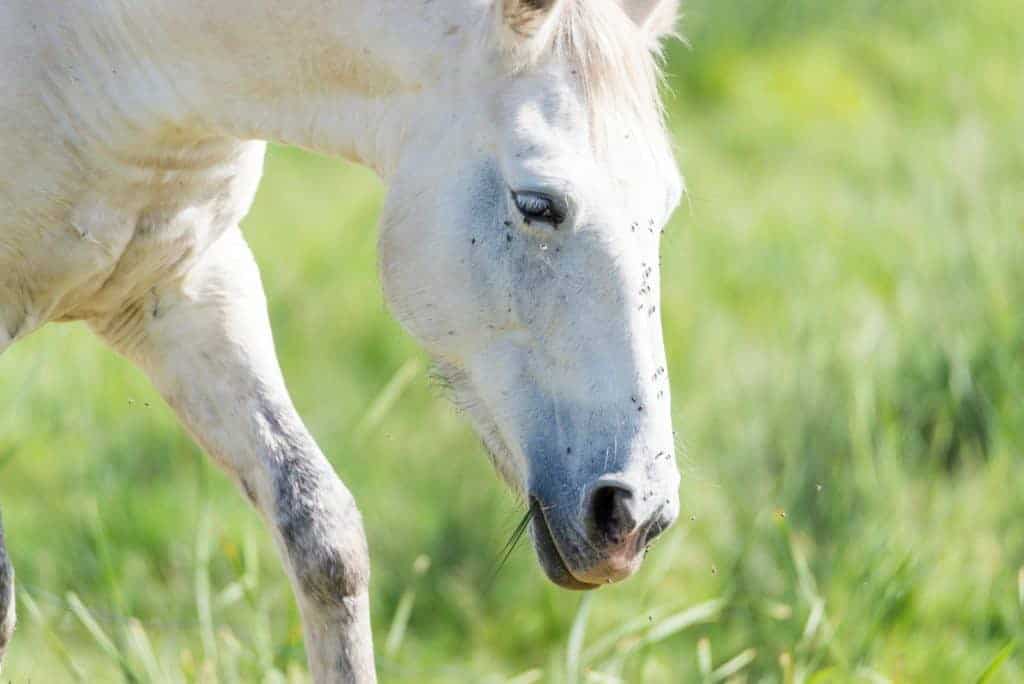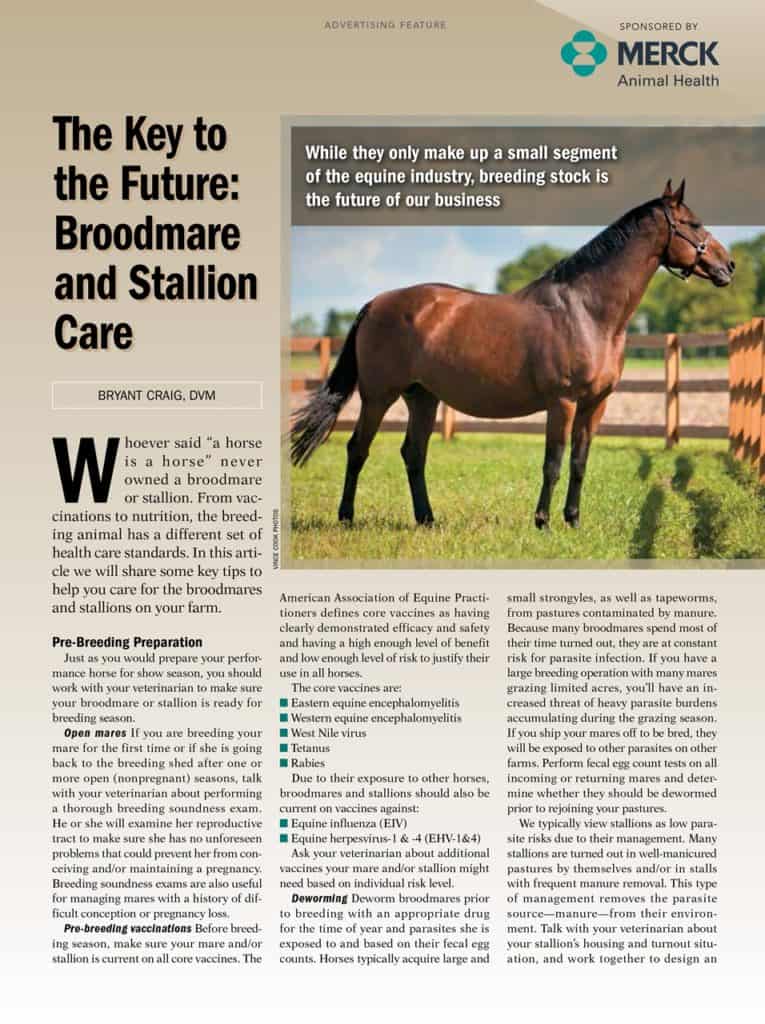
Anti-Mullerian Hormone Helps Assess Aging Mares’ Fertility
Mare fertility declines with age in association with reduced follicle count, and AMH is correlated with follicle count.

Mare fertility declines with age in association with reduced follicle count, and AMH is correlated with follicle count.

Studies covered biofilms, chilled and frozen semen, endometritis, placentitis, oxidative stress and fertility, and more.

The USDA approved the label claim based on safety studies including a total of 446 pregnant mares.
Diagnosed diseases include strangles, influenza, vesicular stomatitis, hendra virus, salmonellosis, and more.

Implementing a proper vaccination regimen for breeding stock is key to minimizing EVA’s spread around the world.

Learn how vaccines can protect horses, why they’re important, and which ones your horse needs in our visual guide.

Equine sexually transmitted diseases can affect pregnancy outcomes and breeding stock welfare.

Dr. Udeni Balasuriya of the University of Kentucky’s Gluck Equine Research Center shares information about diagnosing equine herpesvirus-1 and interpreting test results.

While they only make up a small segment of the equine industry, breeding stock is the future of our business.

Find out which foreign animal diseases North American horse owners need to keep an eye on and why.

Horses are at risk for contracting a number of diseases that can have mild to devastating consequences.

Learn about 20 important equine infectious diseases that could make your horse sick, how they are spread, and ways to prevent them in our easy-to-follow visual guide.

Do all the supplements, concentrates, and forages on the market have you confused about what’s best to feed your horse? Learn what your horse really needs to eat from equine nutritionist and consultant, Dr. Clair Thunes.

A reader seeks answers about a Caslick’s procedure and how the area should be opened prior to foaling.

Summer is peak season for horse shows and events, and Colorado State University (CSU) veterinarians remind riders that it’s important if traveling to take steps to help prevent the spread of equine infectious disease.

Researchers implanted embryos from ponies, saddle horses, and draft horses into surrogate mares of different sizes and observed significant differences in weight, height, and metabolic markers among the resulting genetic half-siblings
Stay on top of the most recent Horse Health news with
"*" indicates required fields